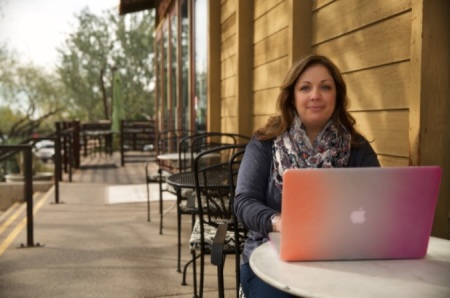Supreme Court agrees to hear Christian web designer's same-sex wedding website case

The U.S. Supreme Court has agreed to hear the case of a Christian web designer challenging a Colorado state law requiring her to create wedding websites for same-sex couples if she also offers similar services for other couples.
In an orders list released Tuesday morning, the high court agreed to hear an appeal in the case of 303 Creative LLC et al v. Aubrey Elenis, et al.
“The petition for a writ of certiorari is granted limited to the following question: Whether applying a public-accommodation law to compel an artist to speak or stay silent violates the Free Speech Clause of the First Amendment,” the order states.
The Alliance Defending Freedom, a conservative legal group representing web designer Lorie Smith and her company, 303 Creative, praised the high court’s decision to hear the appeal.
“This could be a landmark case for religious liberty and artistic freedom,” stated the ADF on Twitter shortly after the order was released. “We look forward to representing Lorie before the high court.”
“The government doesn’t have the power to silence or compel creative expression under the threat of punishment. It’s shocking that the 10th Circuit would permit Colorado to punish artists whose speech isn’t in line with state-approved ideology,” ADF General Counsel Kristen Waggoner said in a statement.
“Colorado has weaponized its law to silence speech it disagrees with, to compel speech it approves of, and to punish anyone who dares to dissent. Colorado’s law — and others like it — are a clear and present danger to every American’s constitutionally protected freedoms and the very existence of a diverse and free nation.”
In 2016, Smith filed a pre-enforcement legal challenge to the Colorado Anti-Discrimination Act, arguing that the law would force her to provide services contradicting her religious views that marriage is a union between one man one woman.
A key issue was that Smith wanted to start building websites for weddings, but she did not want to provide those services for same-sex weddings due to her religious objections to the unions.
In July of last year, a panel of the U.S. 10th Circuit Court of Appeals ruled 2-1 against 303 Creative, concluding that “Colorado has a compelling interest in protecting both the dignity interests of members of marginalized groups and their material interests in accessing the commercial marketplace.”
“When regulating commercial entities, like Appellants, public accommodations laws help ensure a free and open economy,” wrote Circuit Judge Mary Beck Briscoe, a Clinton appointee, in the majority.
“Thus, although the commercial nature of Appellants’ business does not diminish their speech interest, it does provide Colorado with a state interest absent when regulating noncommercial activity.”
Circuit Chief Judge Timothy M. Tymkovich, a George W. Bush appointee, authored a dissent, concluding that “the Constitution protects Ms. Smith from the government telling her what to say or do.”
“But the majority takes the remarkable — and novel — stance that the government may force Ms. Smith to produce messages that violate her conscience,” wrote Tymkovich.
“In doing so, the majority concludes not only that Colorado has a compelling interest in forcing Ms. Smith to speak a government-approved message against her religious beliefs, but also that its public-accommodation law is the least restrictive means of accomplishing this goal. No case has ever gone so far.”
In 2018, the Supreme Court ruled in favor of Christian baker Jack Phillips, arguing that the state of Colorado violated the baker’s First Amendment rights when it penalized him for refusing to bake a custom cake for a same-sex wedding. In the 7-2 ruling, the court reasoned that laws must be applied in a manner that is “neutral toward religion.”
Last July, the Supreme Court declined to hear the case of a Washington-based Christian florist punished by the state for refusing to provide floral arrangements to a same-sex wedding. Last November, the florist, Barronelle Stutzman of Arlene’s Flowers, agreed to pay $5,000 and retire as part of a settlement in the yearslong legal battle.





















